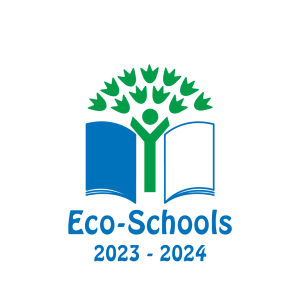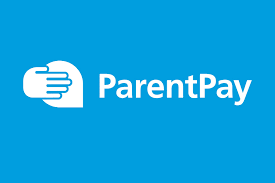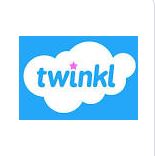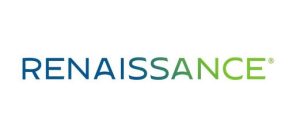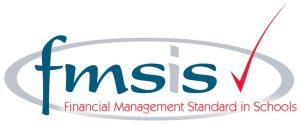Early Years Curriculum
Intent
Our intent is to provide a broad and balanced curriculum based on the new EYFS that addresses the children’s social, emotional, physical, moral, spiritual and cultural development. Learning is fun and we strongly believe in play, first-hand learning and valuing the importance of both the outdoor and indoor environment to develop and support children’s thinking and problem-solving skills. The medium-term planning shows a clear outline of the progression of skills with links to prior learning. We provide children with a range of experiences in a safe and stimulating environment where children flourish and can become independent learners within each of the seven areas of learning. We know the importance of practical learning experiences and strive to equip children with a love of learning and a natural curiosity for the world around them. Every child is unique and should be treated so allowing them the opportunity to develop and learn in a safe and nurturing environment where play and learning is combined. Developing positive partnerships with parents and/or carers and other practitioners linked to supporting children in our Early Years. We are committed to giving our children the best possible start to their school life, teaching them skills that ensure their well-being now and success in the future. We plan transition activities, so children transfer between year groups smoothly and confidently. Every child is included and supported through equality of opportunity and anti-discriminatory practice. Our school core values run alongside our Characteristics of Learning to support/ Learning Powers and encourage independence and resilience.
Implementation
To implement our EYFS curriculum we begin each new year by looking at the individual needs of our children. We carefully consider their different starting points to develop our flexible curriculum which enables them to follow the path of their learning journey, at a point, that is suitable for their unique needs and stage of development. We follow the new EYFS statutory framework 2021 and Early Years Foundation Stage Profile Handbook 2022. Alongside this we use the supporting documents from Development Matters / Birth to Five and Early Years Outcomes and the Assessment and Reporting Arrangements. The EYFS framework includes 7 areas of learning and development that are equally important and inter-connected enabling children to become more powerful learners and thinkers. However, 3 areas known as the prime areas, Communication and Language Physical Development Personal, Social and Emotional Development, are seen as particularly important for igniting curiosity and enthusiasm for learning, and for building children’s capacity to learn, form relationships and thrive. The specific areas focus on Literacy, Maths, Understanding the World and Expressive Arts and Design.
The characteristics of effective learning encompass playing and learning, active learning and creating and thinking critically. This allows children to:
• Be willing to have a go
• Be involved and concentrating
• Have their own ideas
• Choose ways to do things
• Find new ways of doing things / problem solving
• Enjoy achieving what they set out to.
These characteristics of effective learning develop as the children learn to do new things, acquire new skills, develop socially and emotionally and become better communicators.
Staff plan a broad range of activities and experiences for children that enable children to develop and learn effectively. The curriculum is delivered with a balance of small and large group teaching sessions and a play-based approach. We plan a balance between children having time and space to engage in their own child-initiated activities and those that are planned by the adults to develop knowledge and skills. During children’s play, early years’ practitioners interact to stretch and challenge children further. Children have whole group and small group sessions which increase as they progress through the EYFS.
Developing positive partnerships with parents and/or carers and other practitioners linked to supporting children in our Early Years. Where a child may have a special educational need or disability, we discuss needs with our School SENDCo and, linking with relevant services from other agencies, where appropriate. We also provide intervention where appropriate, for example speech and language programmes (Blast/Nelli/language Lego). Our school inclusion team provide support with behaviour and nurture and where necessary further guidance from outside agencies is sought. We recognise that children learn and develop well when there is a strong partnership between practitioners and parents and/or carers.
Parents and/or carers are kept up to date with their child’s progress and development to provide a well-rounded picture of their child’s knowledge, understanding and abilities using Tapestry. Each child is assigned a key person who helps to ensure that their learning and care is tailored to meet their needs. For Reception the key worker for your child will be the Class teacher supported by Teaching assistant.
Impact
Observation, assessment and evaluation are planned for and used throughout the year to inform planning that will allow the children to succeed in their next steps of learning and ensure that each child’s differing needs are met. Assessment is based around ongoing observation and the recording of progress towards the 17 Early Learning Goals. Each Team (Nursery / Reception) meets on a weekly basis to plan using their medium-term plans and current observations, which remain flexible to allow for unplanned circumstances or children’s responses. It is through this process that children will work towards achieving The Early Learning Goal; the level of development expected at the end of the EYFS. Quality and consistency in teaching and learning is essential to enable every child to make good or better progress. Assessment opportunities include:
2 year check
Nursery Baseline Assessment
Reception Baseline Assessment
· All observations, assessments and recording are an integral part of teaching, as they inform future planning for children’s needs and development.
· Careful observations carried out whilst children are engaged in child-initiated activity/play, in order to gain an insight into children’s level of understanding related to specific skills and concepts.
· Careful observations carried out during focused group work/whole class teaching in order to assess children’s level of understanding related to specific skills and concepts.
· Informal observation both in the background and whilst participating with children.
· Discussions with staff and children about their interests and their learning.
· Baseline assessments of key skills and aptitudes on entry to initiate each child’s Early Years Foundation Stage Profile.
· Ongoing termly recording of progress in the EYFS.
· Exchange of information with parents at parent teacher meetings providing a two-way process where teachers and parents share their understanding of a child.
· Pupil progress meetings with the Senior Leadership Team; Early Years Leader.
· Information is gathered from the previous setting initially where possible and at the end of the reception year each child’s progress is discussed with the receiving teacher.
· The Early Years Leader works with other leaders and the Year 1 teachers to assist transition and planning for each child.
We record each child’s level of development and initiate support and intervention where appropriate. It is through these processes that children will work towards being ‘on track’, the level of development expected at the end of the EYFS. The child’s next teacher uses this information to make plans for the year ahead. We share this information at parental consultation meetings and in the end-of-year report. Parents receive an annual written report that offers comments on each child’s progress in each area of learning. It highlights the child’s strengths and development needs.

